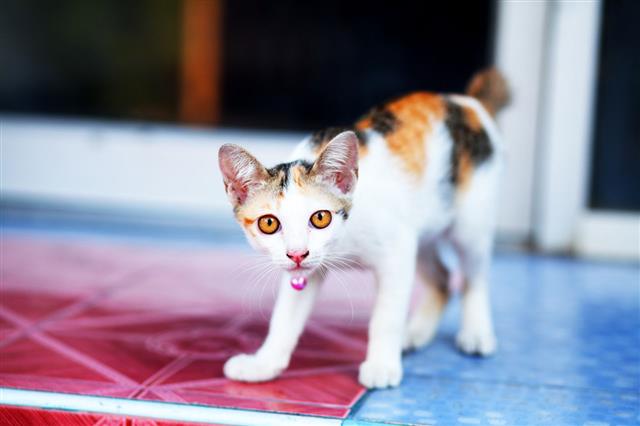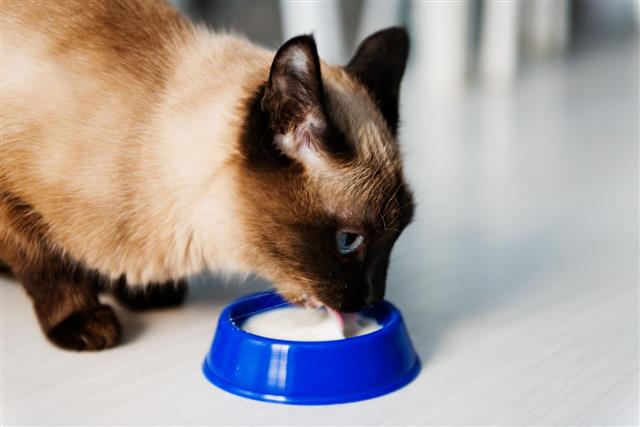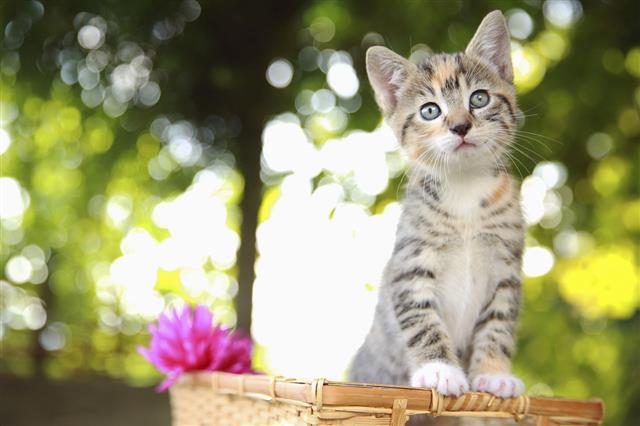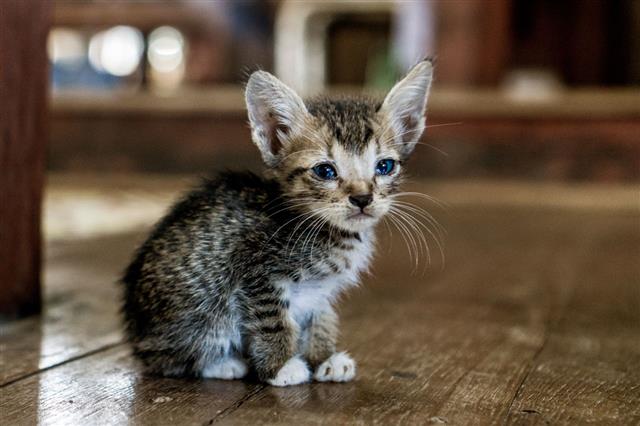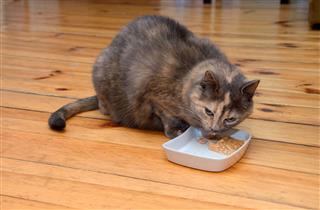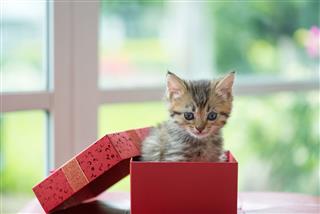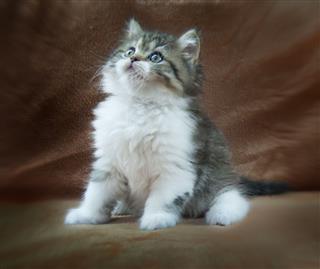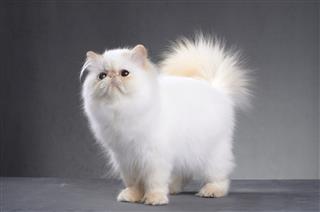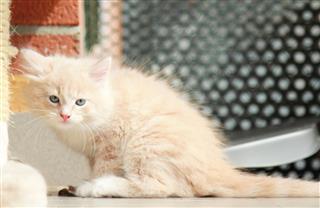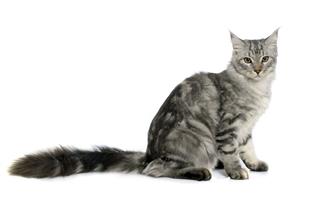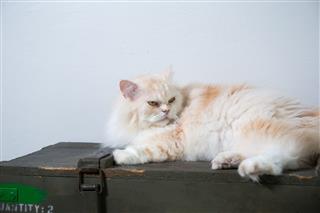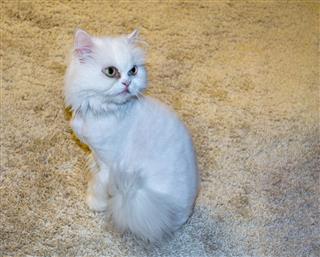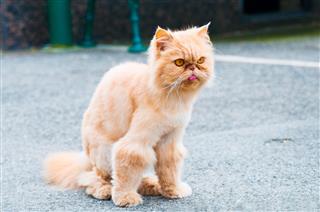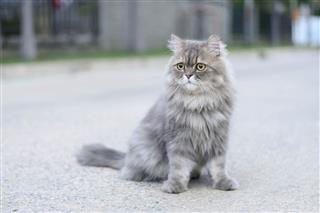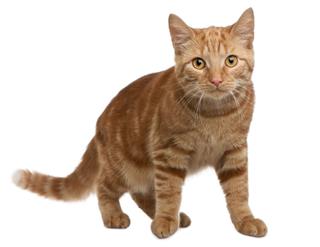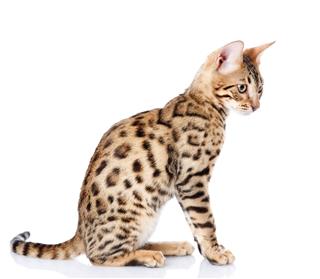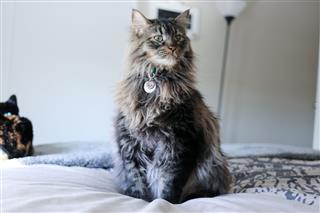
Ammonia smell in urine of cats is a cause of major concern for many feline owners. The following CatAppy article will discuss what causes ammonia smelling urine in cats and help you find out if you need to worry about your cat’s health.
Cats are lovable pets who tend to mind their own business. They are very fussy about their fur, and do not like soiling their precious body. The continuous grooming helps them keep their bodies neat and clean. Once trained to use the litter box, they will never urinate or defecate anywhere else in the house.
All those who have cats, and clean up the litter box, can very well identify, when the cat urine smells like ammonia. The smell is quite unpleasant and disgusting. However, one tends to worry when he/she finds very strong ammonia smelling urine in cats. The stench of ammonia is so strong that it seems to have dissipated to each single corner of the house. This makes you wonder what causes ammonia smell in urine of cats. Should you be worried as it may be a sign of some medical issue or is it normal for cats to pass strong ammonia smelling urine? Let’s find out in the following paragraphs.
What is Cat Urine Composed of?
Before we go into the details of ammonia smell in the urine of cats, it is important to note, what is cat urine composed of. It is made up of different chemicals like urea, uric acid, and creatinine. You will even find presence of some electrolytes in the urine. The cat urine contains other waste chemicals as well as bilirubin, ketones, nitrates, and leukocytes. Urea (CH4N2O) is a nitrogenous waste, that is highly concentrated in the urine of cats. When urea is broken down, it will produce amines that contain the ammonia group (NH4). The amines will further break down into mercaptans, the same molecule found in skunk spray and other animal feces. This shows us that cat urine is primarily ammonia based. This is the reason you always tend to get a mild, lingering smell of ammonia from cat urine.
What Causes Ammonia Smell in Urine of Cats?
As we have seen above, urine gets decomposed into its basic components, and begins to smell of ammonia. But the question is, what causes very strong ammonia smell in the cat’s urine. When your cat expels urine from her body, it contains urea in a concentrated form. As it is urea based, it tends to smell of ammonia. The smell becomes stronger, when your cat does not drink enough water. Cats tend to avoid drinking water. Strong ammonia smell in urine also indicates dehydration in cats. You need to make sure that your cat drinks fresh and clean water. One way to make a cat drink water is by allowing it to drink from running tap water. They tend to love the feel of running water on their tongue and thus, enjoy drinking more water. If the cat drinks less water, their urine gets more and more concentrated with urea. This causes the smell of ammonia to get stronger.
Another reason for very strong ammonia smell in a cat’s urine is unchanged litter. Many times, one fails to change the kitty litter, and this causes ammonia to get concentrated in the sand or clay used as litter. You may find the litter clean, but the smell of ammonia seeps into the sand or clay. This causes the smell to get stronger and awful. Old litter should be changed every week. Those using clumping litter should scoop out the clumped mass, and discard it regularly. You should change the clumping litter weekly. If you use regular litter, then clean the litter, when it is about 30% concentrated with cat urine. Immediately discard litter that is wood, corn cob, or paper based. Or else it will lead to many odor problems as well as lead to cat urinary tract infections.
Cat diet may also be responsible for very strong ammonia smell in the urine. Most of us tend to feed our cats with foods, that contain chicken based proteins. These proteins lead to production of urea, and this gets concentrated in the urine. Thus, when your cat urinates, the urine tends to smell strongly of ammonia. The solution for this problem is to feed your cat with salmon based cat foods once in a while. Different proteins from time to time will help reduce the stench of ammonia in the urine. And, a change in taste will keep your kitty happy and healthy.
Now, coming to a more serious cause of ammonia smell in the urine of cats. If your cat’s urine smells very strongly of ammonia, it may indicate a bacterial urinary tract infection. Sepsis causes the cats urine to stink a lot. You should get your cat examined by a veterinarian, who will be able to diagnose an infection, if present. The cat will need to be treated with antibiotics to get rid of the infection. Cats have a very delicate digestive as well as urinary tract. You need to be extra careful, when it comes to infections of these organs as it will affect your cat’s health greatly. One should also remember that stress maybe one of the causes of strong-smelling urine. You need to check out if your cat is under stress due to some health problem, introduction of a new pet or family member in the house, or some other reason.
It may also happen that your cat has had an accident on the carpet. This generally occurs when cats are not spayed or neutered. When they are in heat, they tend to spray around the house. Male cats do so to mark their territory, and females do so to attract male attention. It is a part of cat behavior. Cat urine contains hormones, that help them send secret signals to fellow felines. If they urinate in a particular place, make sure you clean up the area thoroughly. If the cat continues to smell his urine in the area, he will keep on urinating at the same spot. Thus, urine getting concentrated in that particular spot, leads to strong ammonia smell.
Make sure you make your cat drink plenty of water to keep the urine diluted. If you find that your cat is not eating well and urine has a strong ammonia stench, get her evaluated by a veterinarian. It may be a sign of infection. Hope the above information helps you control the smell of ammonia in your cat’s urine.
Disclaimer: The information provided in this article is solely for educating the reader. It is not intended to be a substitute for the advice of a medical expert.
